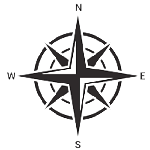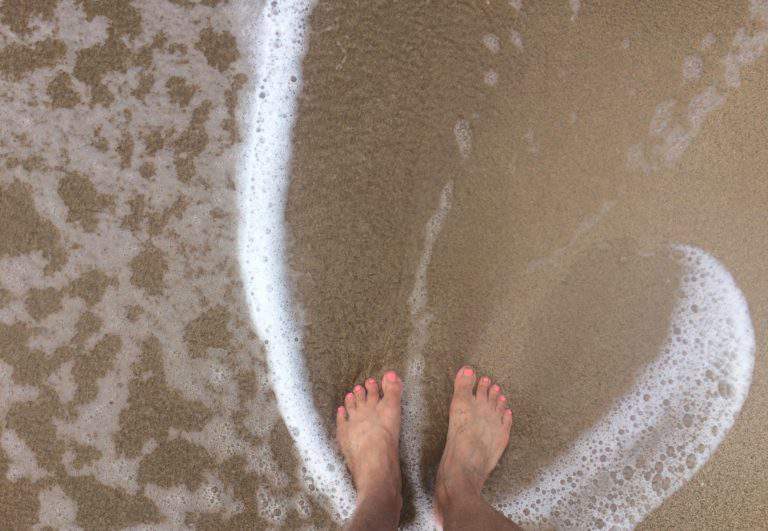Let me introduce you…to you

Hello. I’d like to introduce you to someone interesting and complex, someone you should definitely get to know…YOU!
A typical introduction begins with your name and one of your many roles: This is my husband, Larry…I’d like you to meet our sales manager, Cindy…Say hello to my best friend, Margie.
Depending on the circumstances of the meeting, you may go a little deeper. Amanda is a runner, an artist, a nature lover, a Buddhist, or a free spirit.
But, in this case, you already know all of that about you.
Today, for your introduction to yourself, I’d like to go deeper. Who are you at your core…beneath all of your roles and cultural shaping. Who is your true self?
Knowing yourself is the beginning of wisdom.
~Aristotle
As some of you know, my word of the year is connected, and part of my intention is to live each day connected to my authentic (or true) self. I thought you might like to join me in that worthy effort.
Today, I’m going to borrow just a few of the questions from Starr Regan DiCiurcio’s Divine Sparks to help us in our quest to get to know our true selves. I invite you to spend some time answering each question. Jot down the first thing that comes to mind certainly, but don’t stop there. Keep going deeper. You may be surprised at what is revealed.
- When were you the happiest?
- When do you feel most alive?
- What do you value most?
- What are your greatest strengths?
- What is beautiful to you?
- What is your highest aspiration? (For our purposes, an aspiration is a hope or ambition you can engage with right now. What direction will you move toward today? Aspirations may change over time.)
- What gifts has suffering brought to you?
Your turn
- The answers to your questions may be deeply personal, but if there is anything you’d like to share, I’d love the chance to get to know you better.
- Did any of your answers surprise you?
- What else is on your mind? Anything at all; I just love to hear from you.
Follow my blog with Bloglovin.
Image by Alexandra_Koch from Pixabay







What gifts has suffering brought to you?
I am a more patient woman, but one who knows the limits of her tolerance for intolerance. I am a more hopeful woman, but one who isn’t a pushover. I am a more serene woman, but one who has a silly streak as wide as a river.
Beautifully said, Ally. There is a chant or prayer in Buddhism where you say, “Thank you cruel adversity.” It is an acknowledgement that adversity has much to teach us and can indeed be a blessing…though not one I’m courting at the moment!
These are very insightful and important questions, Christie. Thank you for sharing them with us. I will definitely give them much thought.
Thank you Donna. Truly knowing yourself definitely contributes to inner peace, so this fits nicely with your WOTY.
Hi Christie – we’ve been talking about the benefits that having had struggle in our lives brings to the table. I think we’re deeper and more compassionate because things haven’t always been easy. I also feel like the life I have now is hard won and I appreciate it so much more than if it had all fallen easily into my lap. Great questions to start my day.
I love this insight, Leanne, especially the acknowledgement that the life you have today is hard won and something to deeply appreciate. The fact that you earned it through struggle makes it more precious. I mentioned in another response the Buddhist chant/prayer that includes “Thank you cruel adversity,” basically a recognition that adversity has its place in shaping us and even blessing us, and it makes the joyful time that much sweeter.
These are some really deep questions Christie – thanks for offering them for reflection. I feel most alive when I’m taking good care of myself and have an opportunity to care for others. If I’m caring for others without first caring for myself — then frustration, exhaustion, feeling put upon — creeps in.
So true, Janet. I couldn’t agree more.
My daughter made me 10 Lojong cards for my birthday (the gift: a happiness). She suggested I might use each one as a prompt (a path to realizing strengths and values)
One is similar to “Thank you cruel adversity.” so I thought I would share it:
“Transform all mishaps into the path of Bodhi.” Her note tells me: “This is the basic statement of lojong altogether: how to use the unwanted, unfavorable circumstances of your life as the actual material of awakening.:
The lojong cards are from Pema Chodron’s “Start Where You Are.” I find they are, in their own way, like your post: a way of introducing myself to myself. So important.
Thanks for your post.
What a lovely gift from the heart. I love the concept of turning the unwanted, unfavorable circumstances into awakening. Thank you for sharing that.